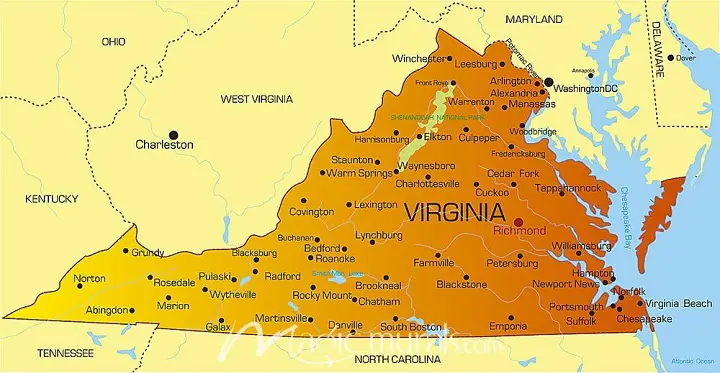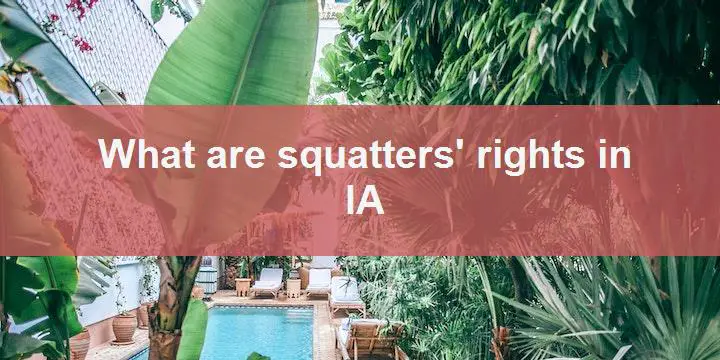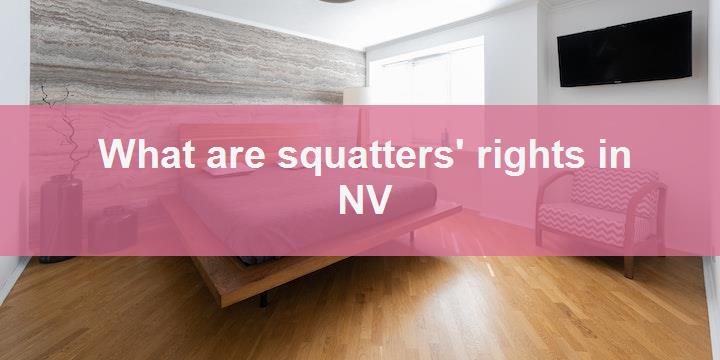Squatting in Virginia is a complicated and contentious subject. Although squatting is considered illegal in most states, Virginia has certain laws that provide squatters with limited rights to occupy a property without the owner’s consent. Squatters’ rights in Virginia can be challenging to navigate, and the legal implications of squatting can be significant. If you are curious about squatters’ rights in Virginia, this article will provide you with an overview of the laws and regulations that govern the practice to help you understand how it works in the state.
Squatters’ rights, also known as adverse possession laws, allow a person to gain legal ownership of a property belonging to someone else if certain conditions are met. In Virginia, the most important requirement is that the squatter must be occupying the property for a continuous period of 15 years. During this time, the squatter must also have made improvements to the property, paid property taxes, maintained the land, and used the property as their primary residence. If these conditions are met, the squatter can file for legal ownership and may be granted title to the property. It’s important to note that squatters cannot claim ownership of government-owned land or property, nor can they take over property that is regularly occupied or maintained by the owner.
What is the squatting/squatter?
Squatting refers to the practice of occupying an unoccupied or abandoned property without the owner’s permission. A squatter is someone who enters a property unlawfully and occupies it, often living there illegally. Squatting can occur for various reasons, from the inability to afford housing to political activism. In some cases, squatters may improve the property or even claim ownership of it through adverse possession, a legal principle that allows someone who uses a property without permission for an extended period to gain ownership rights. While squatting is illegal in most places, it remains a contentious issue, particularly in cities where high rents and housing shortages drive people to seek alternative forms of housing.
What is an example of a squatter?
A squatter refers to a person who unlawfully occupies an unoccupied or abandoned property without the owner’s consent. Squatters can be found in different parts of the world, and they come from all walks of life. For instance, a homeless individual seeking shelter and a place to sleep could choose to squat in an uninhabited building or land. Another example of a squatter could be a group of political protestors who occupy a public space, such as a park or even a government building, to show their displeasure with a particular policy. Similarly, there are cases where people intentionally occupy a property without the owner’s consent for economic reasons or to assert a territorial claim. While the act of squatting is deemed illegal, it is often difficult to remove squatters because of the complicated legal processes that need to be followed.
What is Adverse possession in Virginia?
Adverse possession in Virginia is a legal concept that enables an individual who is not the rightful owner of a property to claim legal ownership of it. In order to do this, the person must openly and continuously occupy a property for a period of 15 years, without any legal hindrances or objections from the true property owners. To establish a claim of adverse possession, the individual must demonstrate that their possession was hostile or hostile, actual, uninterrupted, open, notorious, and exclusive. Further, the possession must have been under a claim of right, meaning that the person believed they were the legal owners of the property. Once the 15-year statutory period has been satisfied, the individual can file a lawsuit to legally obtain ownership of the property by adverse possession. However, it is important to note that the process of adverse possession is complex and often requires the intervention of an experienced attorney.
Is it legal to squat in Virginia?
Squatting refers to the act of occupying a property without the owner’s permission or any legal right to do so. In Virginia, squatting is illegal, and anyone caught squatting risks facing legal charges. Under Virginia law, squatting is considered trespassing, and property owners have the right to report and evict squatters with the help of law enforcement agencies. Additionally, squatting can lead to various legal complications, such as civil lawsuits from the property owner, as well as potential criminal charges if the squatters cause damage to the property or engage in illegal activities. Therefore, it is essential to understand that squatting in Virginia is not only unlawful but also comes with severe legal consequences.
Can police remove squatters in Virginia?
In Virginia, the police do not have the authority to remove squatters from properties. The law requires property owners to go through the proper legal process to remove someone from their property, regardless of whether the individual is a squatter or tenant. The eviction process includes filing a notice of eviction with the court and serving the squatter with a notice to vacate the property. The court will then decide if the eviction is lawful and issue an order of eviction if necessary. If squatters refuse to vacate the property after receiving the notice of eviction or court order, a property owner may request the help of a law enforcement officer to enforce the order. However, the police’s role is limited to ensuring that the eviction is carried out peacefully and to keep the peace during the eviction process.
How to evict squatter in Virginia?
In Virginia, a squatter is someone who occupies a property without the owner’s permission. Evicting a squatter can be a difficult and time-consuming process, but it is possible. The first step is to identify the squatter, and determine whether they have any legal right to be on the property. If they do not, the owner can serve them with an eviction notice. The notice must follow a specific format, and must include information about the reason for the eviction, the date by which the squatter must vacate the property, and details about the owner’s legal rights. If the squatter refuses to leave, the owner may need to file a legal action to have them removed. This typically involves going to court, and proving that the squatter has no legal right to be on the property. Once a court order is obtained, the owner can take steps to physically remove the squatter from the property. It is important to remember that any attempt to physically remove a squatter without a court order can result in criminal charges.
FAQ
Q: What are squatters rights in Virginia?
A: Squatters’ rights are protections afforded by law to people who occupy property without permission or valid title. In Virginia, these rights are limited compared to other states because the state has strict rules for adverse possession.
Q: What is adverse possession?
A: Adverse possession is a legal doctrine that allows a person who occupies a property without the owner’s permission to claim ownership of the property after a certain period of time. The time period in Virginia is 15 years.
Q: What actions can I take to protect my property from squatters?
A: Virginia law provides property owners with several options to remove squatters, including filing an ejectment lawsuit, a request for a restraining order or a complaint to local law enforcement.
Q: What are the best practices for property owners to prevent squatters from occupying their land?
A: The best practices for property owners to prevent squatters from occupying their land include; regularly inspecting the property, posting no-trespassing signs, fencing or gating the property, installing security cameras and lights, and seeking legal guidance when necessary.
Sources
Virginia State Bar: Legal Information Center – Property Law.
Also reading




